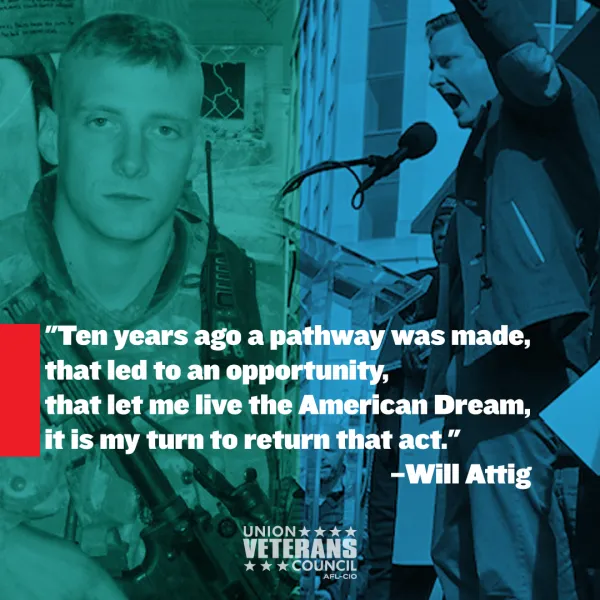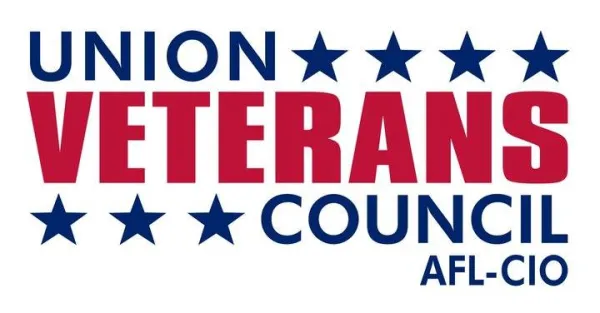UVC Urges Congress to Support Veterans Employment Programs

WASHINGTON, D.C. – This morning, the Union Veterans Council, AFL-CIO sent a letter urging Congress to learn from the lessons of the 2008 financial crisis and to take early, swift action to mitigate the financial hardships that inevitably will be leveled on America’s veterans and their families as the coronavirus recession takes hold.
This last month the veteran's unemployment rate jumped to 12% including thousands of service members transitioning to the ranks of the unemployed. A 2013 U.S. Army War College report titled Financial Instability: Suicides Weapon of choice painted a clear picture of the lack of preparation and monitoring of veterans during the great recession. Since the 2008 recession, the suicide rate in the veteran and service member community has increased at a dramatic pace, and today an estimated 20-22 veterans and service members take their own lives per day.
[caption align="left"]
The UVC letter calls on Congress to provide funding to bolster skilled training, direct-hire, and apprenticeship programs, including providing educational benefits for veterans in apprenticeship and on-the-job-training programs regardless of whether or not they have on-the-job hours to report. These programs provide pathways for veterans and service members transition into civilian life and secure quality careers in construction and other industries. These programs provide immediate opportunities to veterans in need of work.“One suicide is too many and increased Financial Instability is like handing a loaded weapon to our heroes,” said Will Attig Executive Director “We must take a unified and asymmetric approach to mitigate this issue that starts with gainful employment”.
Sam Phipps, a combat Infantry Veteran is just one of the thousands of service members who have found a path through a DOD-United Association(UA) transition program, “To say the Veterans in Piping (VIP) program has changed my life would be a complete understatement.” One of the biggest stresses during anyone’s military career is the transition back into civilian life, these programs offer a smooth transition in high-quality jobs with the stability of high wages and benefits. The VIP program completely lifted that weight off the shoulders of his newly started family with guaranteed placement in a career and all the benefits that come with being a union member. “For a small town Infantryman with not a lot going in my direction, this program opened the door and gave me the opportunity to become successful,” said Sam Phipps.
The letter further asks Congress to protect transitioning service members by streamlining licensing and credentialing for specialty skilled service members, enabling those service members to quickly enter the civilian workforce. This includes military medics, who, without credentials, cannot provide crucial reinforcement for frontline healthcare workers fighting the COVID-19 pandemic.
For Executive Director Will Attig this more than just a project, ten years ago Attig transitioned out of the Military into an economic battlefield during the great recession, struggling like so many others during that time. He found himself with a job, a degree, or what seemed like a future, “many days it felt hopeless, many days I felt that I could easily become a statistic” Said Attig, a Combat Infantryman who served with 1-26 Battalion (Blue Spaders) during the GWOT conflict. After a year of struggling a Helmets to Hardhats welding program gave this young veteran from Southern Illinois an opportunity to live his American dream. “I decided that day to dedicate my life to help other veterans find pathways to gainful employment”.
[caption align="right"]
As a country, we have a responsibility to ensure that veterans and military families are able to live the American Dream they served to protect. Millions of veterans are at risk of unanticipated job loss during the COVID-19 pandemic, while the conditions of the pandemic put the mental health and physical health of our veterans at risk. Congress must take decisive, pre-emptive action supported across multiple agencies to protect and expand programs that provide critical employment opportunities and pathways to transition service members to civilian life.
To paraphrase President Abraham Lincoln, we must care for all those who have borne the battle - today the battlefield is on the home front, and the enemy is a virus and an economic fall-out that threatens the stability of our veteran’s community. Together we can live by those words by ensuring these brave Americans and their families every opportunity to live the American Dream they served to protect.
